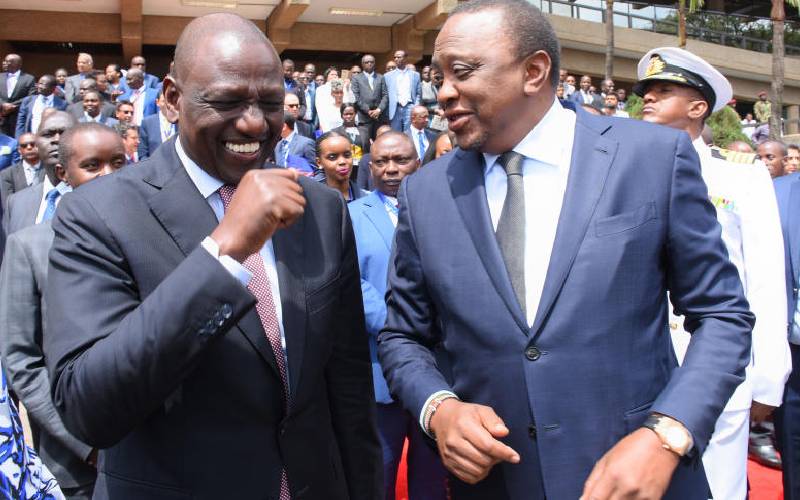×
The Standard e-Paper
Kenya’s Boldest Voice

Deputy President William Ruto and President Uhuru Kenyatta. [Standard]
As a business leader, it is disconcerting to witness the ongoing breakdown of unity in the Executive and the Legislature.